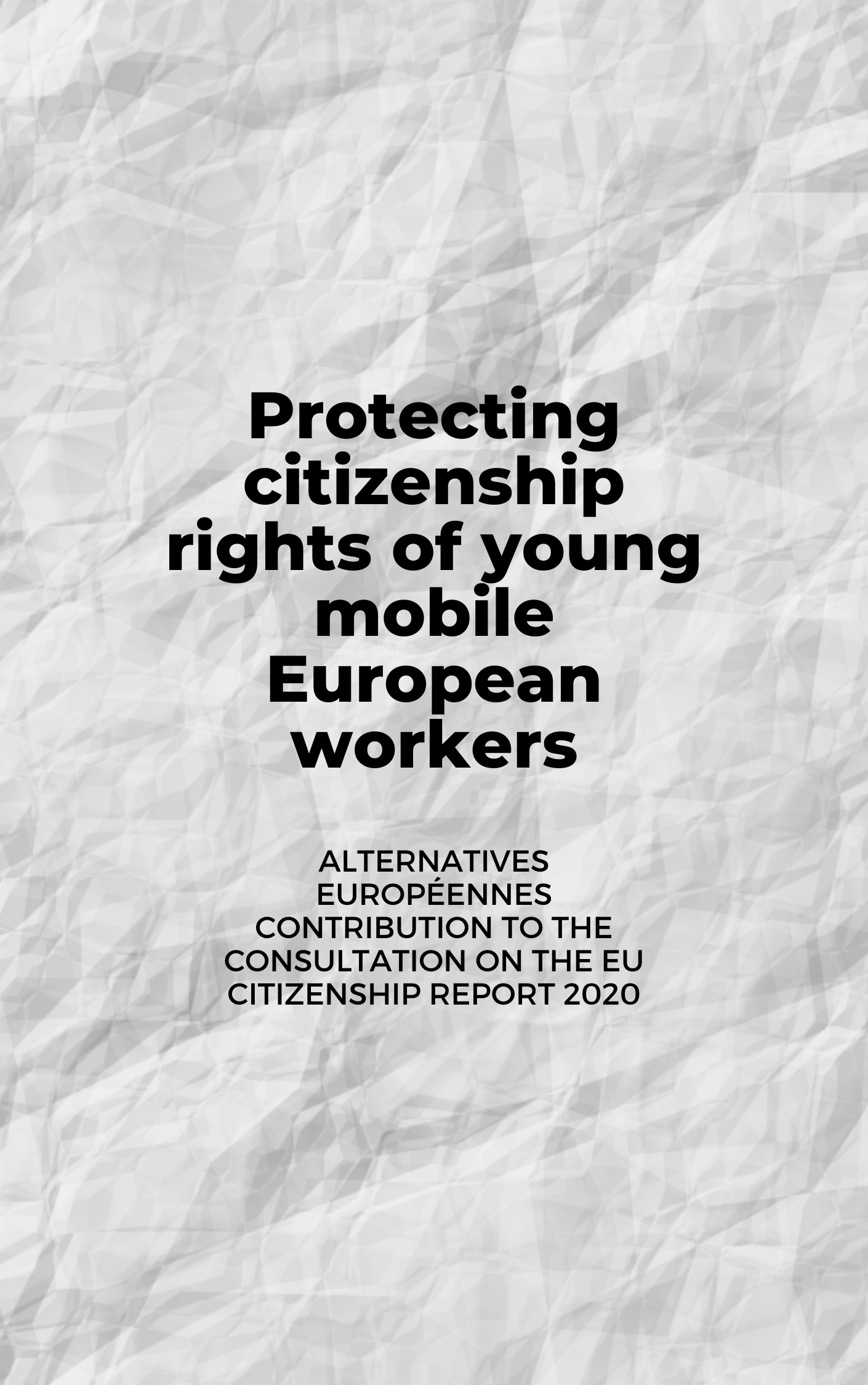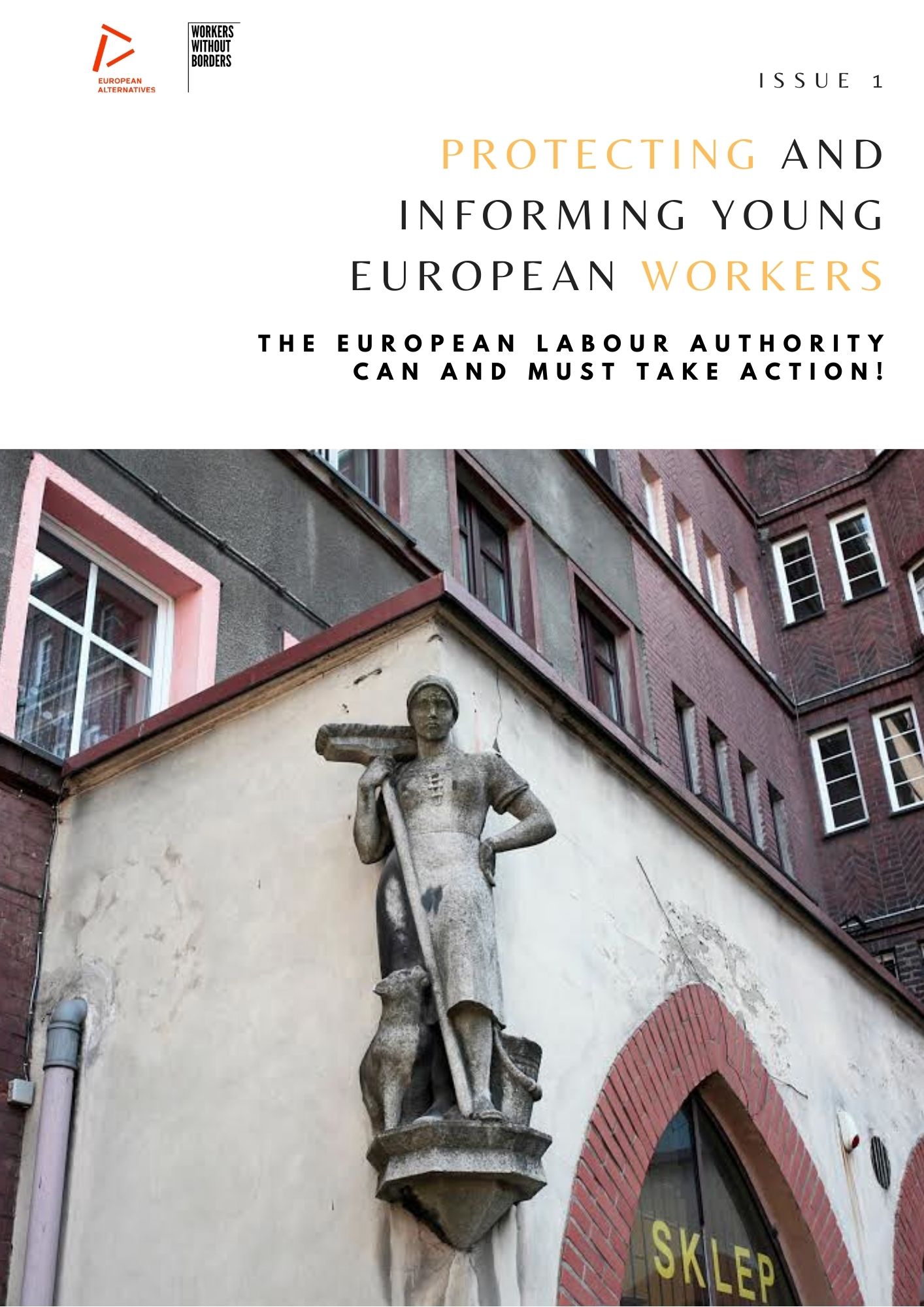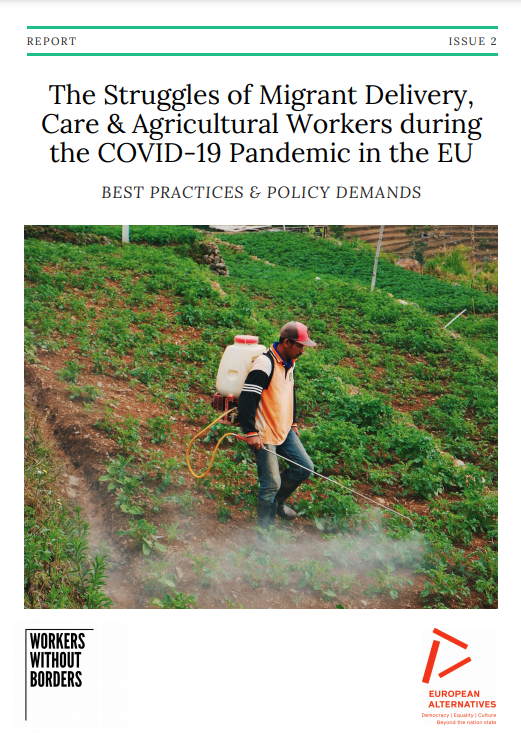Workers without Borders advocates for the European institutions to do more to protect the rights of workers who move. In particular, it calls on the newly established European Labour Authority to take initiative in order to protect the rights of young workers and people in precarious forms of employment.
Moving country for work has become an everyday part of life in Europe. People move to find a job in another country, to keep a job they already have which is relocating, or for their job which itself involves moving across borders. People move temporarily or more permanently, and people may even have different jobs in different countries and move between them.
If the European Union has facilitated and accelerated the free movement of workers, it has typically been less successful at protecting the rights of all of these workers who move. Attention has concentrated on workers ‘posted’ by their company temporarily to another country, and on people who are in traditional forms of permanent employment in another country than their own. Today, increasing numbers of people are involved in temporary employment, platform work, self-employment and in the informal parts of the care-economy. These workers can face discrimination, exploitation, be exposed to greater health risks, be less well protected by social security programs, and have less opportunity to defend their rights.
This project advocates for the European Union institutions to do more to protect the rights of workers who move. In particular, it calls on the newly established European Labour Authority to take initiative in order to protect the rights of young workers and people in precarious forms of employment. Through researching the risks to the rights of these workers, as well as best practices of trade unions and governmental agencies to protect these rights, the project will produce policy recommendations and promote structured dialogue between young and precarious workers and EU institutions.

Countries Involved
Europe and the UK
Duration of Project
November 2019 - ongoing






